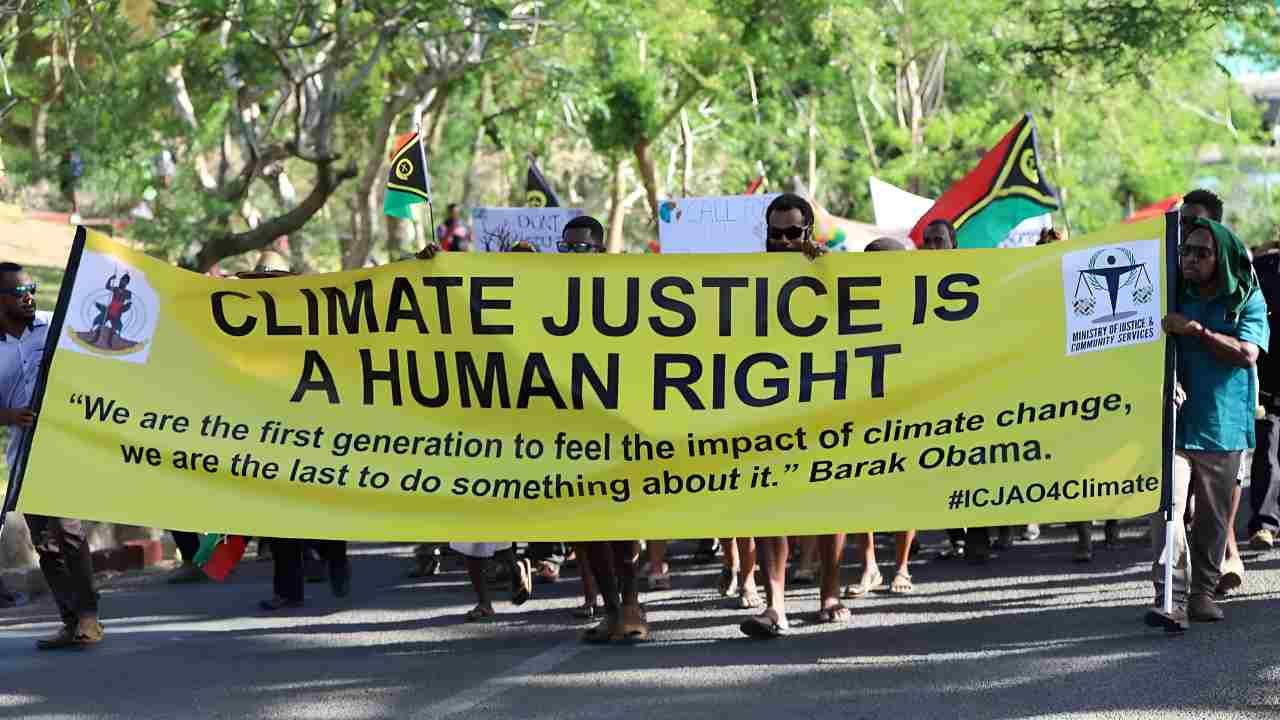

Professor Tafaoimalo Tologata Leilani Tuala-Warren says
Photo/supplied
Ecocide: Why NZ should support Pacific petition to international court
Law professor Tafaoimalo Tologata Leilani Tuala-Warren says Aotearoa should make ecocide a criminal offence domestically.



Pacific sports wrap: 2025’s massive highs, lows and historic firsts


Top 10 Pacific Island songs you need on your summer playlist in 2025


Pacific sports wrap: 2025’s massive highs, lows and historic firsts

The recent proposal by Vanuatu, Fiji, and Sāmoa to recognise ecocide as a crime against humanity is timely, law professor Tafaoimalo Tologata Leilani Tuala-Warren says.
Tuala-Warren, Dean of Te Piringa Faculty of Law at Waikato University, said the petition by the Pacific island nations to the International Criminal Court (ICC) could provide a global framework of accountability for environmental damage.

Climate advocates take their message to the streets in Vanuatu. Photo/Charley Piringi
Ecocide is defined as acts of “unlawful or wanton” environmental destruction, committed in the knowledge of their likely severe, widespread, or long-term effects.
Last week, the Pacific nations formally requested an amendment to the principal treaty of the world's highest court to add ecocide alongside genocide, war crimes, and aggression to the international community’s list of most serious crimes.
Tuala-Warren says there is a long way to go before ecocide is recognised by the ICC, "if it ever happens".

The International Criminal Court in The Hague, Netherlands. Photo/ICC
She adds discussions of the proposal are likely to take several years and much will depend on the level of support the proposal gains from the 124 countries party to the ICC, including Aotearoa New Zealand.
But for Aotearoa, this is a chance to champion a progressive legal response and show leadership in the region, Tuala-Warren said.
"We need countries like New Zealand to add their voices to this petition because as we know, our Pacific neighbours have looked to Aotearoa historically.
"Aotearoa has been a leader in the Pacific, in many different areas. From education, for example, to fighting family violence, Aotearoa has been the regional leader there.
"And I think the call is for Aotearoa to get behind this proposal so that it doesn't take as long as I'm afraid it will take. But we need those countries behind us especially Aotearoa, a founding member of the Rome Statute that created the ICC."
Fijian environment scientist Alisi Rabukawaqa-Nacewa says after decades of tireless advocacy and proliferating discussions, it’s crunch time for ecocide.
"If we first start with a definition of ecocide, it's the severe and widespread damage to the environment caused by human activity," she told Pacific Mornings' William Terite.
"When you think about climate change as well, and I really want to tie them both in from the start as I'm talking about it, the impacts of climate change are also that.
"In climate justice, we talk about anthropogenic climate change which is human-induced climate change.
"In both instances here, we are looking at environmental destruction caused by human activities. So that's like the common factor.
"For us in the Pacific, we have for a very long time now really talked about, expressed, and now putting into action this fight that we are the ones who are at the front lines, but we are not the ones who are causing a lot of this destruction," Rabukawaqa-Nacewa said.
Tuala-Warren said she would like to see New Zealand have an opinion about the petition because she "had not heard anything about Aotearoa's position on this petition".
"I think that is critically important, and that's why I think speaking in forums like this and raising awareness is really important because it does require political will in Aotearoa.
"The more we speak about it, the more public pressure there will be on government to take a stance in relation to this issue.
"Domestically, the public in Aotearoa is very aware of the devastating effects of the climate crisis. Most recently, was Cyclone Gabrielle, a devastating example of this.
"New Zealanders know something must be done. Although making ecocide a criminal offence nationally or internationally, it's not a silver bullet or a miracle cure as the effects of climate change are largely irreversible.
"But we can deter future offending and slow down the devastating effects of the climate crisis because it will have an enormous deterrent effect against future environmental destruction. And that is a very powerful effect."